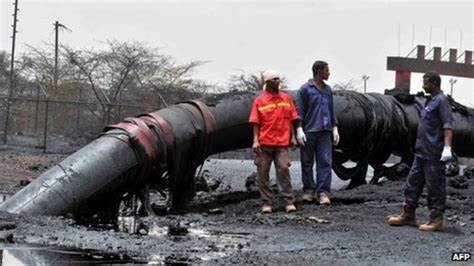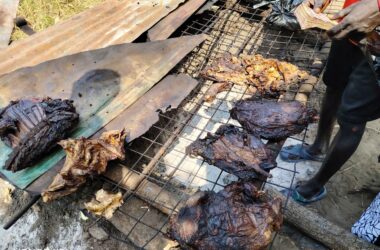By Yiep Joseph
Upper Nile State governor, James Odhok Oyay has issued an order suspending the Community Development Committees (CDC) from directly handling the 3% of oil revenues.
According to the statement dated September 9 directed to the National Minister of Finance, Governor Odhok suspended the CDC, which was tasked with coordinating between the oil-producing communities and the National Ministry of Finance and Planning.
“I am writing to you in reference to the above-mentioned subject to inform your esteemed office that I suspend these CDCs of 3% of oil revenue from direct writing to your office,” the statement read.
The governor did not reveal the reason for such a decision.
He directed the CDC to request the oil shares through the state government but not directly from the National Ministry of Finance and Planning.
“All those committees should write to the office of the governor, and then the office of the governor writes to your office,” the statement read in part.
Meanwhile, when contacted for comment on the matter, James Basha, Minister of Information and Communication in Upper Nile, confirmed the decision but requested more time to update the public.
“I got this information yesterday (Wednesday), but I do not have enough information to feed you on exactly what is going on, and I will gather enough information,” Basha said.
He said that there are issues that forced the governor to make such a decision but declined to mention whether there are wrangles in the oil shares.
Efforts to reach the Chairperson of the CDC in various oil-producing counties in Upper Nile State were unsuccessful by press time.
However, in an interview with this outlet, Kuol Thon, a member of the oil-producing Malut County, said that the 3% oil share is for the community, and the committee suspended by the governor represents the community.
He appealed to the state government to ensure transparency, citing that such revenue is meant to compensate the communities affected by the oil production.
Kuol urged both the state governor and CDC leaders to ensure that there are no wrangles in the 3% oil revenues meant for development.
He reiterated the need for those receiving remittances to ensure that the money reached the community in order to meet the intended purpose, which is development.
Under the Petroleum Act 2012, the oil-producing communities were entitled to 3% oil revenue.
However, according to a 2018 report by the SUDD Institute, there have been uncertainties surrounding the shares in order to reach the community as stated in the Petroleum Act.
“The three per cent (3%) share of net petroleum revenues has not been properly allocated and transferred to petroleum-producing communities. The two per cent (2%) share of net petroleum revenues has been improperly allocated and transferred to the producing states,” the report read in Summary.




